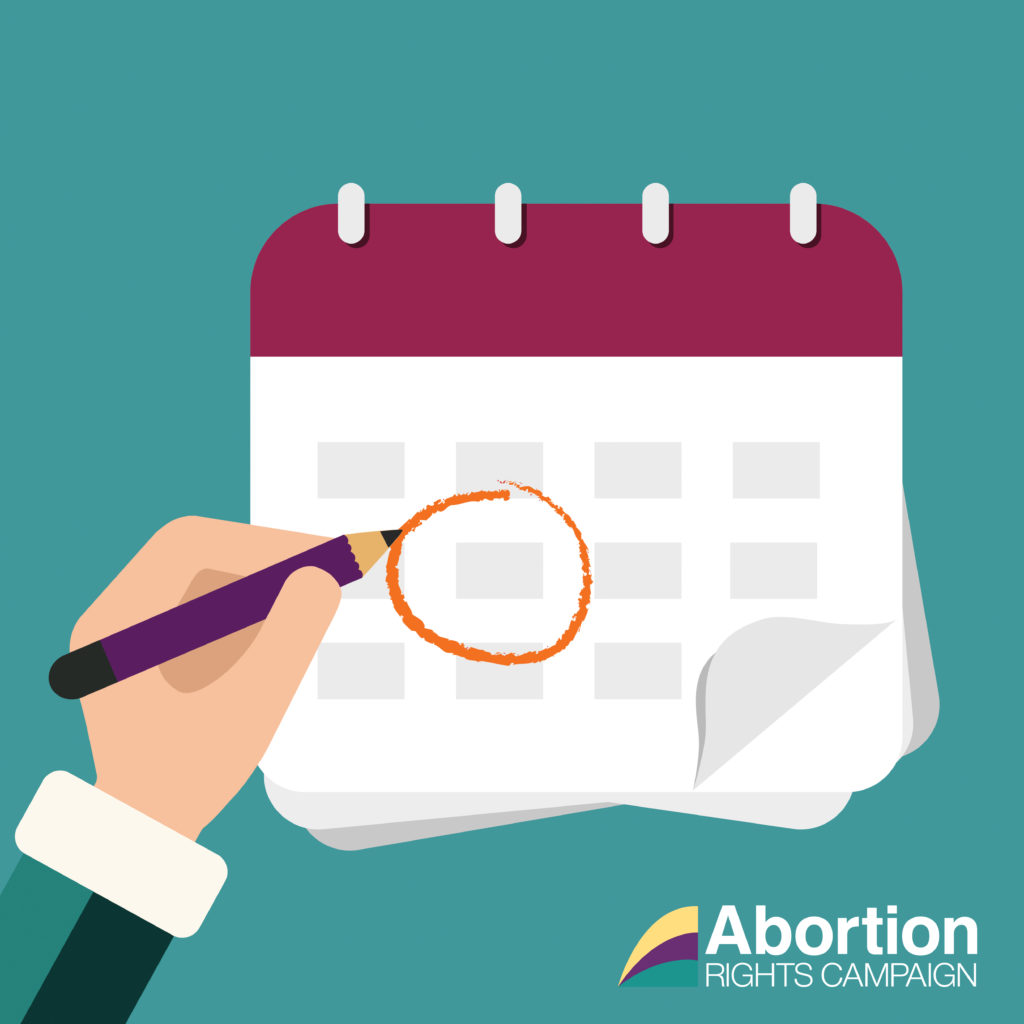
On referendum day, we will be asked to remove the 8th Amendment and allow the Oireachtas to regulate for legal abortion in Ireland. In addition to legislating for access to abortion when there is a risk to the pregnant woman’s health, or after a diagnosis of a fatal fetal abnormality, a key recommendation from the Joint Oireachtas Committee on the 8th Amendment (JOC) is to make abortion available on request up to the 12th week of pregnancy. This means that a person who is pregnant would not have to pass any particular test to qualify for a legal abortion during this time period. Here, we discuss the importance of abortion access on request and look at the reasoning behind the JOC recommendation.
A protected time period is necessary to provide compassionate care to people who have been raped.
One major reason the JOC decided on a 12 week period of abortion access on request is to guarantee that anyone who is a victim of rape or incest can access abortion care. This recommendation would bring Ireland in line with our European neighbours. Almost all other countries in Europe allow those who have been raped to access abortion in early pregnancy without having to meet onerous and potentially traumatising requirements such as reporting to the police.
As expert witnesses explained to the JOC, many victims never report their experience – to law enforcement or anyone else. Dr. Maeve Eogan of Rotunda Hospital Sexual Assault Treatment Unit testified that “for a broad range of reasons including self-blame, shame, fear of judgment and lack of information, many people who experience sexual violence never tell anyone about it.” When someone does report the crime, it will typically take about two years for the case to be heard in court, long past the time a person has to make decisions about pregnancy and abortion.
For both doctors and patients, it would be very difficult to require individuals who need abortion care to first report or disclose rape. As Dr. Peter Boylan of the Institute of Obstetricians and Gynaecologists concluded, “There is no diagnostic test to confirm rape, so I strongly recommend that a woman who has undergone the trauma of rape should not be forced to ‘prove’ rape if she chooses to terminate a resulting pregnancy.”
People typically learn that they are pregnant around 6 weeks, sometimes later.
Pregnancy is usually measured from the first day of the last menstrual period, which is approximately 2 weeks before conception, meaning that references to “the 12th week of pregnancy” actually refer to the 10th week since conception. Most people do not know immediately that they are pregnant; they typically realise or find out between 4 and 6 weeks, after missing a period. Others do not find out until later, especially if they have irregular menstrual cycles, do not know of the signs of pregnancy, or used contraception and therefore did not expect to become pregnant.
So a 12 week period of access in reality amounts to a 6 week window in which someone could be expected to realise they may be pregnant, confirm with a test, consider their personal and family circumstances, and then find a doctor to consult with and receive care from. For some people, this window will be much shorter.
We already have abortion access on request, if someone has the capacity to travel.
The reality in Ireland is that abortion is available to those who have the means and ability to travel outside the State. The Irish Constitution allows access to information and permits people to travel to countries where they can receive safe abortion care and be treated with dignity and respect. However, travel is not possible for everyone, including migrants or asylum seekers who legally cannot leave the country, those in abusive relationships with controlling partners who are prevented from travelling, those whose health or disability hinders their ability to travel and those who simply can’t afford the cost of travel. In heartbreaking cases such as that of Amanda Mellet, the United Nations has been clear that traveling abroad is not an adequate substitute for access to healthcare at home.
Early abortions are obtained in Ireland everyday, despite practical difficulties and legal risks
As many as 5 Irish residents per day access abortion here in Ireland illegally and without the support of their own doctor by ordering abortion pills online. While abortion pills are very safe, this scenario deprives people of in-person medical care and creates tremendous stress and fear about going to a local physician for after-care. People who procure abortion pills, for themselves or someone else, are at risk of being sentenced to up to 14 years imprisonment under current law. The proposed period of access up to 12 weeks will reflect this reality and bring early abortion out of the shadows and into medical practice.
Deciding to continue or to end a pregnancy is a personal, private decision, made in the context of an individual’s unique life circumstances. Abortion without restriction as to reason does not mean “abortion for no reason”; it means that the person who can best consider the circumstances and make the decision is the person who is pregnant, in consultation with their doctor. Voting Yes is the necessary first step to ensure the safe, compassionate medical care we need in Ireland.
If you would like to learn more about the many different reasons people need abortion care, read the powerful Irish stories available at the website Everyday Stories and the Facebook page In Her Shoes.


keep sharing…It is very informative Post…
early pregnancy by check it with MRI?
very good blog, very useful for the information and the structure of the writing style, I will come back again for more information